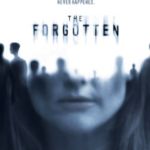The Hunger Games (2012)

What do you look for in a heroine? Do you want courage, integrity, self-sacrifice, mercy, love of liberty? You’ll find them all in this film’s heroine. You’ll also find villains who ooze perfidy, cruelty, bloodthirstiness, cynicism, betrayal and tyranny – aplenty. In short, you won’t doze off. (By the way, yes: here it’s “heroine,” not “hero,” for a woman who’s heroic – or at least is the leading lady.)
This mega-dystopian film opens with a caption that sets the stage. In punishment for a quashed rebellion decades ago, each of 13 largely poverty-stricken districts in a reorganized, totalitarian North America must “offer up” a teenage boy and girl every year to be selected from their peers to take part in the Hunger Games, “a Fight to the Death, until a lone victor remains.” The setting of this mortal combat is not an arena but a forest. The powers that be intend this spectacle to remind their subjects who is boss – and to provide sick entertainment for the effete, regime-supporting denizens of the capital city.
Along comes Katniss Everdeen (Jennifer Lawrence), 16, from a coal-mining district so poor that its residents face malnutrition. To feed her Mom and sister Primrose (Willow Shields), age 12, Katniss poaches the king’s deer, so to speak – she hunts game with a stashed-away bow and arrows – her “pike in the thatch.” In this bleak existence she tells her friend Gale (Liam Hemsworth) that she doesn’t want children. When tiny Primrose gets picked for the Games and faces certain death, Katniss immediately volunteers to take her place.
Taken to the capital with her district-teammate Peeta Mellark (Josh Hutcherson) to train for the coming grisly spectacle, Katniss wins the respect of former Games champ Haymitch Abernathy (Woody Harrelson) with her defiant spirit, and he becomes her mentor. As soon as the contest starts, the weakest entrants fall victim. Knowing that Peeta believes his best strategy is to go solo for the time being, Katniss is on her own. In a Mount Olympus-like set, observers monitor the contest and can influence it. Viewers in the capital and around the districts watch live public broadcasts of the spectacle, close-ups and all.
The most ruthless contestants form a temporary alliance and pursue Katniss, but she, skilled in the ways of the woods, eludes them, although just barely. Finally cornered, she fights back inventively and effectively. Katniss, though she is an able, modern-day Diana the Huntress, kills her fellow humans only to save her own life and that of Rue (Amandla Stenberg), a 12-year-old who has befriended her.
https://youtu.be/do1smOv8rf4
When Rue is slain, a grieving Katniss lays flowers atop her and makes a gesture of both farewell and defiance: kissing and then holding up the middle three fingers of her left hand. Seeing this, viewers in her home district do the same and then attack policemen of the regime – a first spark of revolution. President Snow (a coldly menacing Donald Sutherland) is furious and wants Katniss dead, but Haymitch instead persuades the Games’ referee (Wes Bentley) to change the rules to allow two winners. Katniss comes upon a wounded Peeta and aids him; they become true teammates.
Katniss and Peeta end up as the last two survivors besides Cato (Alexander Ludwig), the most skilled competitor and the cruelest. Cato and Peeta fight, and Cato manages to hold Peeta as a human shield. He warns archer Katniss that if she shoots him Peeta will topple along with him into a pack of savage giant dogs below. She shoots Cato in the hand, he loses his grip, and Peeta tosses him to the dogs. As the dogs start ripping Cato to pieces (heard but not seen), Katniss euthanizes him with an arrow (the impact not shown).
SPOILER ALERT: Katniss and Peeta think they have won the Games, but are told the two-winner rule is now revoked, so only one of them can win. Peeta wants Katniss to kill him, but she refuses and offers him poisonous berries with which they can commit suicide, Romeo-and-Juliet style. Suddenly they are told to stop and are declared winners. An ebullient interviewer telecasting the Games (Stanley Tucci) coaxes them to appear to be a couple, and they return home to a cheering throng that includes Katniss’s mom (Paula Malcomson), Primrose, and Gale. The movie ends with a morose and sinister President Snow pondering what to do about Katniss.
The movie has several problems. As is standard in dystopian films, no one appears to be Christian anymore. Katniss needn’t forever close the door on becoming a mom. The movie uses a particularly hard case to make euthanasia look good. Katniss and Peeta didn’t need to consider suicide; they could have just sat down and shamed the powers that be into declaring them winners. But otherwise, the movie does a fine job of highlighting the human person’s dignity and worth and of showcasing the primacy of conscience and the legitimacy of resisting tyranny.
The film prompted the sequels The Hunger Games: Catching Fire and The Hunger Games: Mockingjay, Parts 1 and 2; stay tuned.
The MPAA rating for this film is “PG-13 for intense violent thematic material and disturbing images – all involving teens.” The movie is based on the novel of the same name by Suzanne Collins. Gary Ross directed. He, Mrs. Collins and Billy Ray wrote the script. James Newton Howard composed the score. Tom Stern was the cinematographer. Christopher S. Capp, Stephen Mirrione, and Juliette Welfling were the film editors. Casting by Debra Zane. John Collins was supervising art director, assisted by Robert Fechtman and Paul G. Richards. Set decoration by Larry Dias, costume design by Judianna Makovsky and production design by Philip Messina.
— Dan Engler












